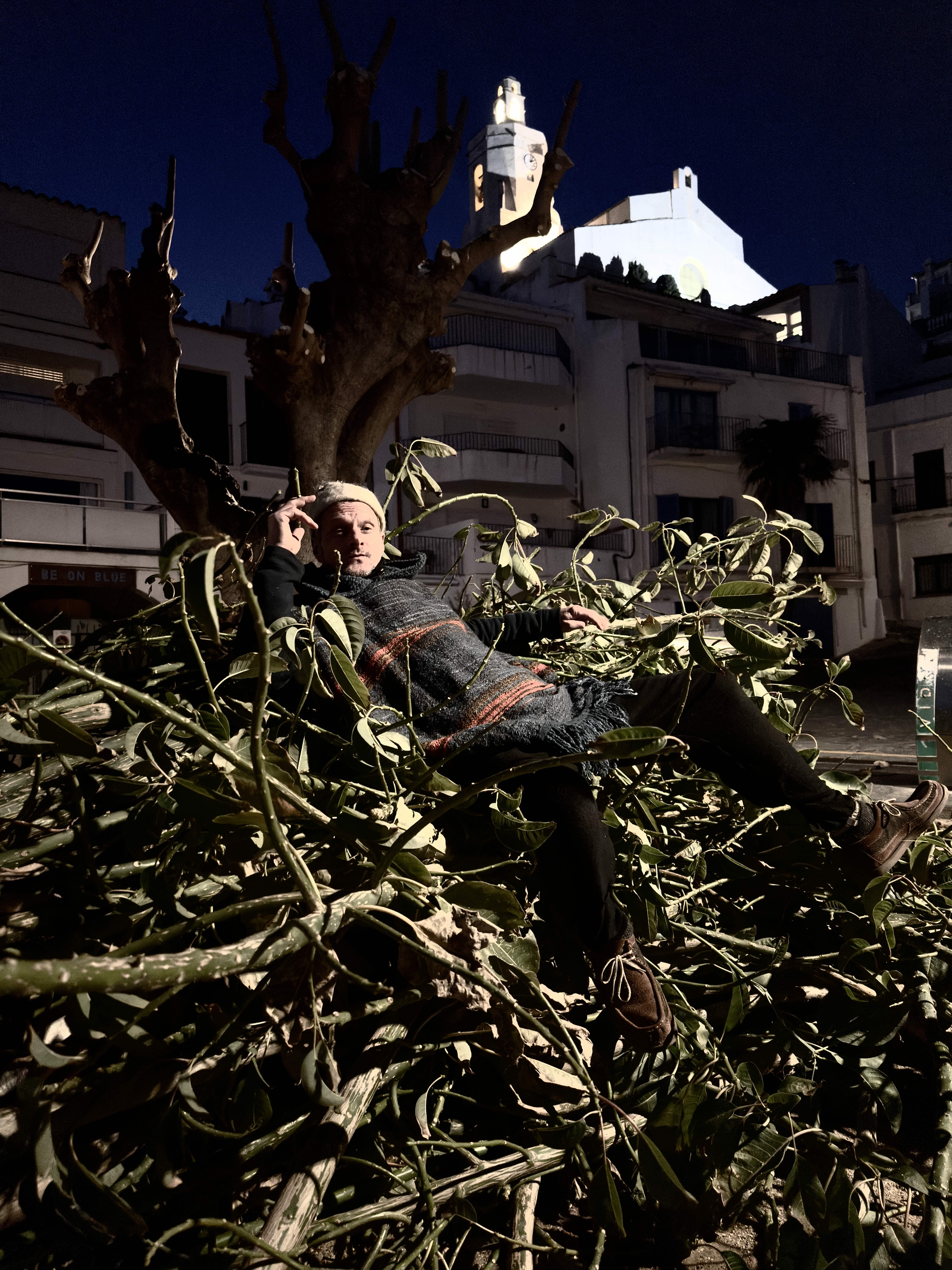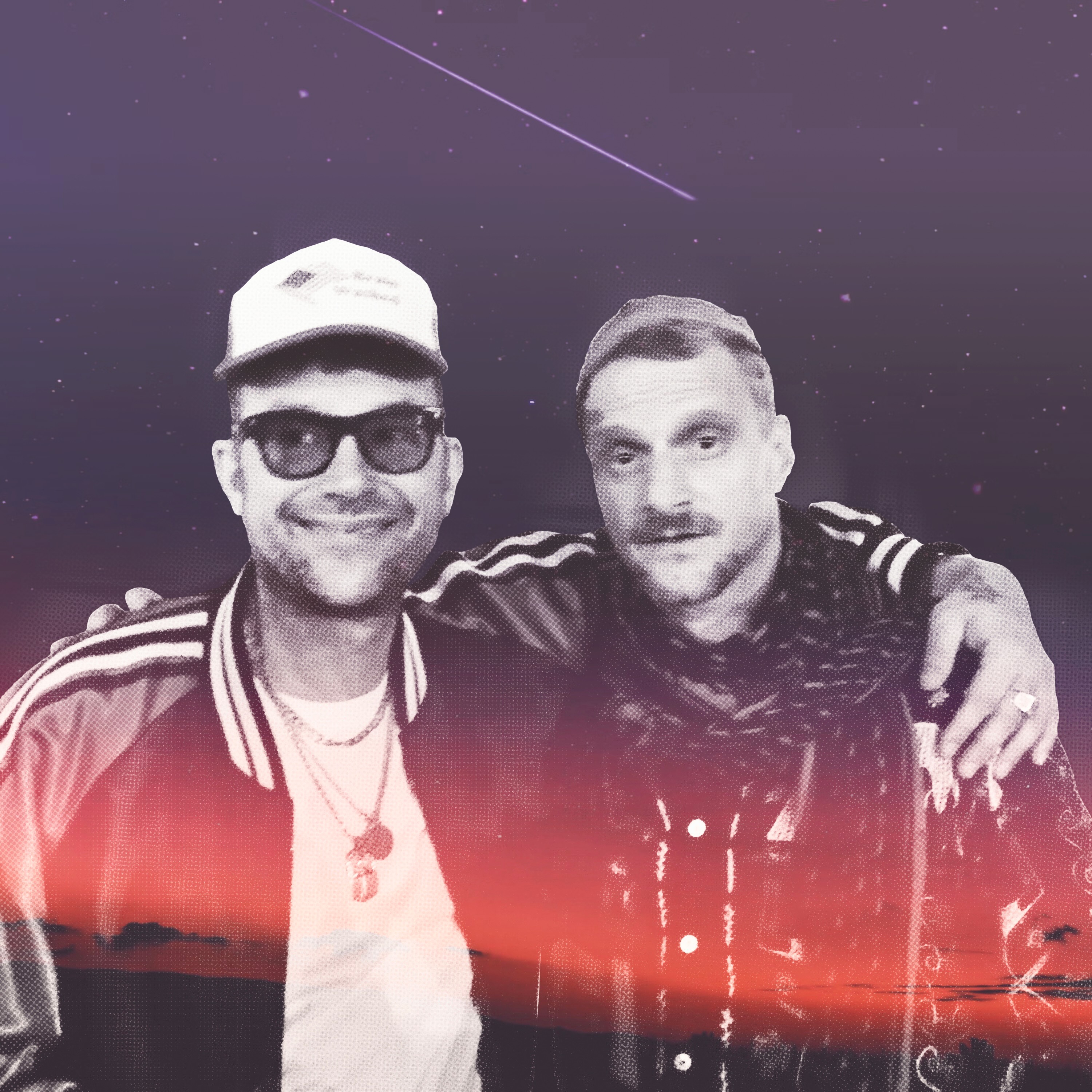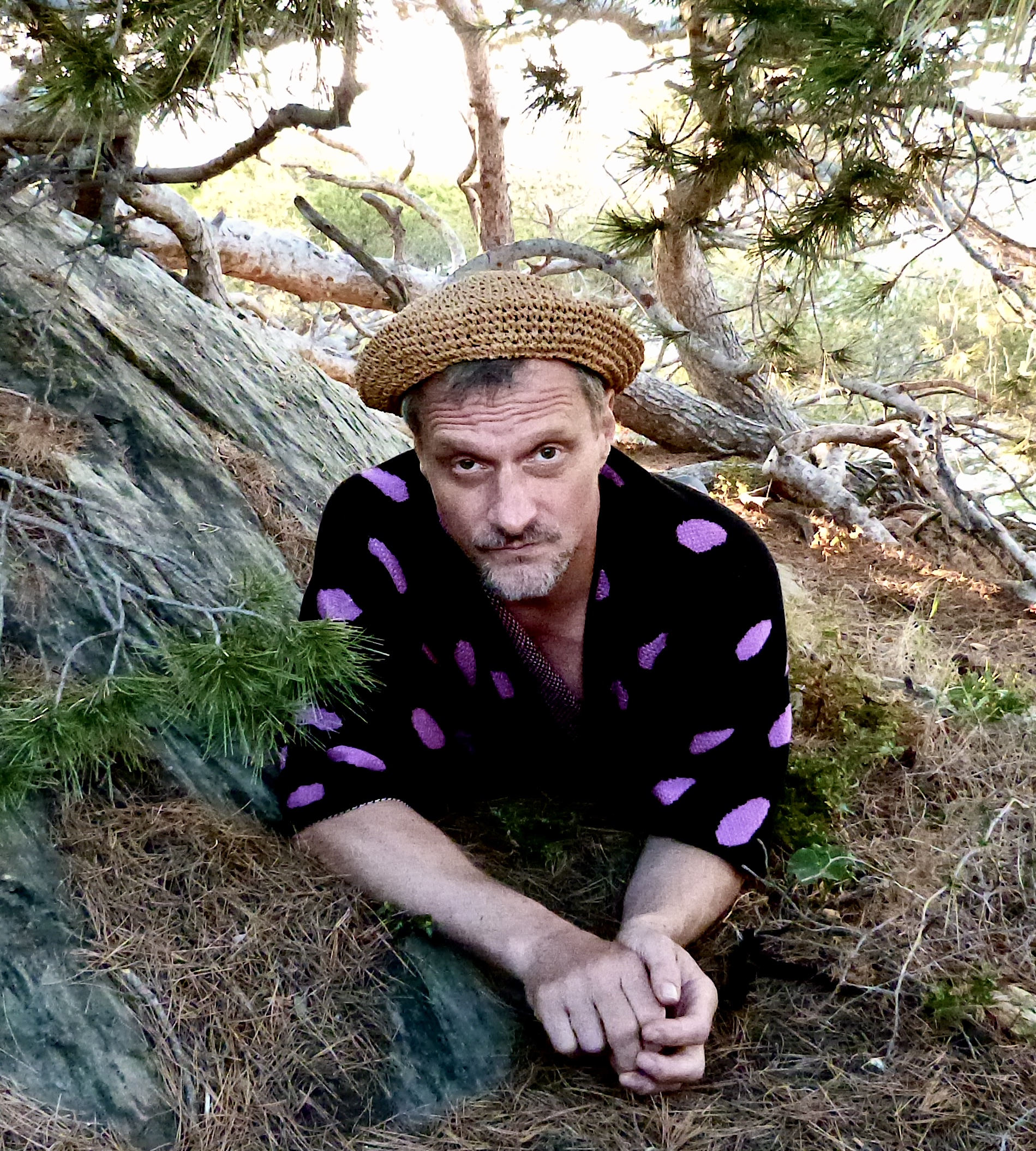DJ Koze is a dictator. A friendly one, who is intent on creating a safe space for the artists he works with, but a dictator, nonetheless. His insistence on control has led to such spellbinding albums as ‘Amygdala’, ‘Knock Knock’ and now ‘Music Can Hear Us’ though, so he’s clearly on to something. Sean Griffiths caught up with him to discuss chatting German poetry with Damon Albarn, the ultimate clean high of Brazilian jiu jitsu and why the album format remains the pinnacle of musical expression. “I’m like a stubborn goat on a mountain,” he maintains…

Few artists manage to create a musical universe as perfectly formed as DJ Koze. The Hamburg native (real name Stefan Kozalla) concocts a heady brew that touches on everything from house and techno to folk, backpack hip hop and Eastern mysticism. It’s hard to put your finger on exactly what the secret ingredient is in Koze’s music, but you always know when it’s touched you. Fresh from producing Róisín Murphy’s ‘Hit Parade’ in 2023, he’s back with ‘Music Can Hear Us’, his first solo album since 2018.
Hey Stefan. How are you? The world feels like a completely different place from when you put out your last album, ‘Knock Knock’ in 2018. How have the intervening years been for you?
“I guess in general, things have been good for me but I’m having to strengthen my mindset to stay positive as that’s getting more and more difficult today. Things happen so quickly in the world now and there’s a lot of dark forces at work. I never thought I could have anxiety just facing life but I’m definitely more anxious about the state of the world. But then there’s always music which is a beautiful escapism.”
Music’s an escape in general but your music in particular gives the listener a sense of being cocooned or protected inside a bubble. Is this something you try to recreate in your life?
“Yes, I do. I try to create a bubble and a safe space with the artists around me. It’s the old idea of a posse but we’re more of an inward looking posse. The artists on this album and the artists around me are people who share my outlook and approach. I have a precise idea of what I like and my music making process is about spending hours and hours, getting deeper and deeper into that space. Sometimes it resonates with people and sometimes it doesn’t, but I don’t have a choice but to do this. I’m lucky to have like-minded people around who say: ‘Let’s keep on working how we can’.”
Tell us about some of the collaborators on the album.
“I have Ada singing on two tracks and she’s kind of my muse. She released an album on Pampa 10 years ago and we talk on the phone every day. And Sophia Kennedy too, who sings on two songs in German. I’m friends with my collaborators and we’re on the same page musically so it’s never my idea to try and get superstars on tracks to lift my profile.”
You’re all in Hamburg too. How important is the city to your music?
“Well, it’s not Berlin at least, maybe that’s of some importance. Hamburg’s a boring, nice place but also somehow quite rough. It’s open and we have the sea and the harbour. We have a great blend of nationalities from all over the world. There’s not too many distractions here and I think that allows me to drift off in my music. It’s a bit like lockdown even when there’s no lockdown.”

You’ve got a track with Damon Albarn on the album. You and Damon are both masters of beautiful melancholia, so it feels like a collaboration that makes a lot of sense. How did it come about?
“I did a remix for Gorillaz in maybe 2018 or 2019 and then I asked if he’d be up for singing on a track with me at some point. Then we met at Coachella and had a fun hour backstage in my trailer getting pissed. I think he even has some German roots and we talked about (Swiss-German poet, novelist and painter) Herman Hesse and Africa and all sorts of things. I sent him some music and he sent back a vocal and I played around with it for a long time. My style of music making is like slow cooking whereas he works very fast. He’s a real musician. I think he does music all day every day. I really admire him and think he’s a role model for other musicians.”
Is that how you always work on music? Are you ever in the same room as the artist?
“Yes, the artist has to let go of control quite a lot. Some artists like that and some artists don’t but I think through this work process more interesting stuff can happen. I send some music for them to record a vocal and then I almost deconstruct the whole thing and I think that’s where the magic happens.”
It’s interesting because we often celebrate the idea of musicians working together in the same room. Especially in bands. Bowen, the guitarist from IDLES, said the band had been working remotely a lot since Covid and he felt that had really unleashed his creativity.
“Yeah, I think the collective is overrated. I’m like a dictator. Otherwise, you end up with three people sat in a room and one thinks: ‘What am I doing here unless I say something?’ Then you end up with opinions and ego slowing the process down and diluting it.”

There’s a few tracks in German on the album and I always really enjoy your tracks with German vocals. Do you think starting your career making music in German gave you more space to develop? I always think there can be more space for playfulness when people are making music outside of the English language.
“I think it probably did give me more space to develop and do my own thing, yes. It doesn’t really make sense if you want to attract a huge international audience, but the wonderful thing now is how our listening routines have changed. We’re streaming everything that exists next to each other and one minute I’ll be listening to a Spanish or French songwriter next to music from Japan or auto-tune rap from Miami or Swedish folk and, for me, it makes sense somehow. I love the idea of creating something that works like a mixtape and it might not make sense straight away but when taken as a whole it really does. I love Gilles Peterson’s radio show for example. He’ll play a jungle breakbeat tune, then 20 minutes of Sun-Ra, then Nina Simone and then Shabaka Hutchings, but it’ll all somehow make sense together.”
Even your mixtapes and compilations have a really strong sense of flow and narrative – programming seems really important to you. Do you think we’ve lost the art of album programming and sequencing with the way everyone listens to music nowadays?
“I do, but I’m like a stubborn goat on a mountain. When putting this album together, it has to compete with all the old, classic albums I go back to. If I shift two tracks around, it can completely change the feel of the album, so I spend a lot of time getting it just right. The album is still the format to beat for me. Everyone plays the singles game now but an album, it’s a cultural statement. Sometimes it might not make sense to people straight away but five years later, people come back to it and it all falls into place for you. It’s like when Jean-Michel Basquiat first came out everyone was like: ‘He’s cool, but he’s just some graffiti guy.’ But now, you use a certain yellow or a certain blue in a certain way and it’s ‘Basquiat’. And that takes the passing of time. For me, in music, the album format is still really the only way you can do this. Could Aphex Twin bring people into his own, unique world with just one track? ‘Windowlicker’ maybe, but I think you need a bigger body of music for it to really make sense to people. It’s like a guided trip. That’s the power of music for me, to put your brain into another state.”
Aphex is interesting, because over 30 years into his career and at a time when he’s not putting out loads of music, he seems to be bigger than ever. There are parallels with you both in that you’ve not really compromised who you are or the music you make but slowly, more and more people have come into your world.
“Totally, and that takes some time for people to digest and understand. In our current ADHD Insta way of existing, you need people whose music or art is completely uncompromising and you need to take time to be sucked in by it.”
You mentioned wanting each album you make to be able to sit alongside classic albums in your collection. What are the classics you always go back to?
“You know, one album I was thinking about yesterday is ‘Chocolate and Cheese’ by Ween. It’s a crazy album from 1994, but feels so timeless. ‘Selected Ambient Works Volume II’ I always return to, but I skip a few of the super spooky dark tunes as they scare the life out of me. The KLF’s ‘Peel Sessions’ I always go back to and then ‘Doggystyle’ by Snoop Dogg. Then ‘Homework’ by Daft Punk is still a blueprint for me. When I make dance music I still look at that album and think: ‘How can I make something with that rough energy that’s abstract but still so in your fucking face?’ Or then, someone like Nina Simone, how can anyone’s soul not be moved by that? There’s so many, but these albums are some of the reference points I always come back to.”

You produced Róisín Murphy’s ‘Hit Parade’ album. How was that experience for you?
“That album was quite a long process. A real slow cooking experience. Roisin’s a really special artist and really gifted. Y’know it feels like a long time ago now though.”
Did the controversy around Róisín’s comments on Trans Rights overshadow the album for you at all?
“It was all a bit confusing and kind of irritating. It was definitely a lesson in realising everything can just explode in one second these days. You say something, someone reacts and then this whole storm comes. But the world keeps spinning. I don’t think it overshadowed the experience for me. I’m really proud of that album and that Róisín came through it stronger.”
Any other dream music collaborations on your wishlist?
“I always end up working with my bunch of friends or people I’m talking to. It usually happens quite organically but maybe, Pharrell, Busta Rhymes and Missy Elliott would be cool. And Burna Boy would be great. I love his voice and his music, but I’d have to come up with something really unexpected for both of us. I’d like to get them all round for a dinner party and some slow cooking.”
What’s on the menu?
Oh, it would have to be something simple and not too overambitious. Maybe a Ramen soup, or maybe spinach and potatoes and fish fingers. They’d say: ‘Oh, this is cute, he doesn’t want to impress me.’ Then they’d fall in love with me because the food was so unglamorous.”
People might not know but you’re a black belt in Brazilian jiu jitsu.
“Oh, I could talk about this all day. I’ve done it for 11 years and it’s the cleanest high. It’s the perfect counterbalance to circling around myself in a loop in my artistic bubble. I train constantly. I want the high all the time. You’re so in the moment when you’re doing it because otherwise someone could choke you! You can’t really think of anything else while you’re doing it, while swimming or running your mind can drift to think about other things. The chemicals it allows your body to release are so addictive.”
This article first appeared in issue seven of Disco Pogo.




.svg)
.jpeg)
.jpg)

